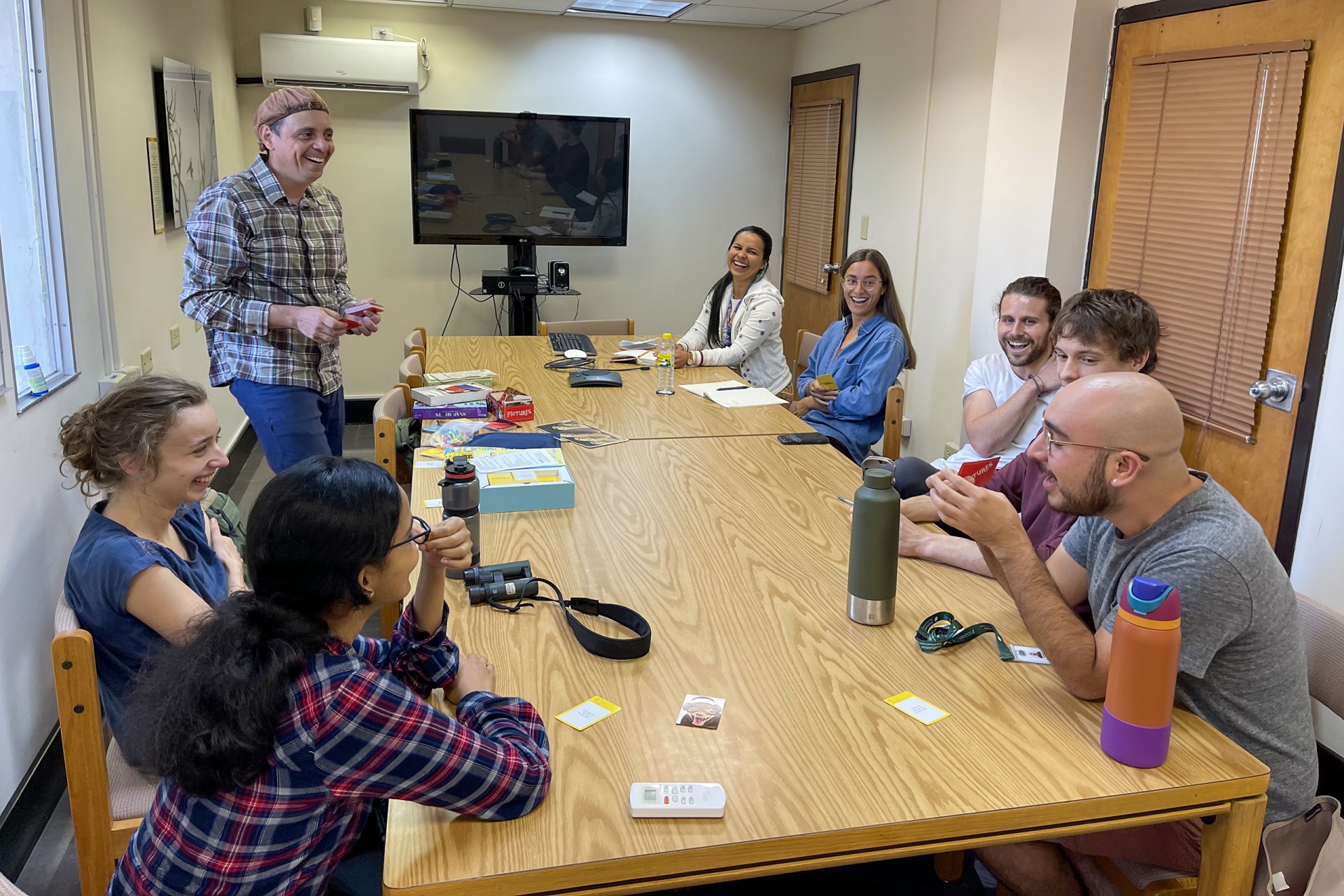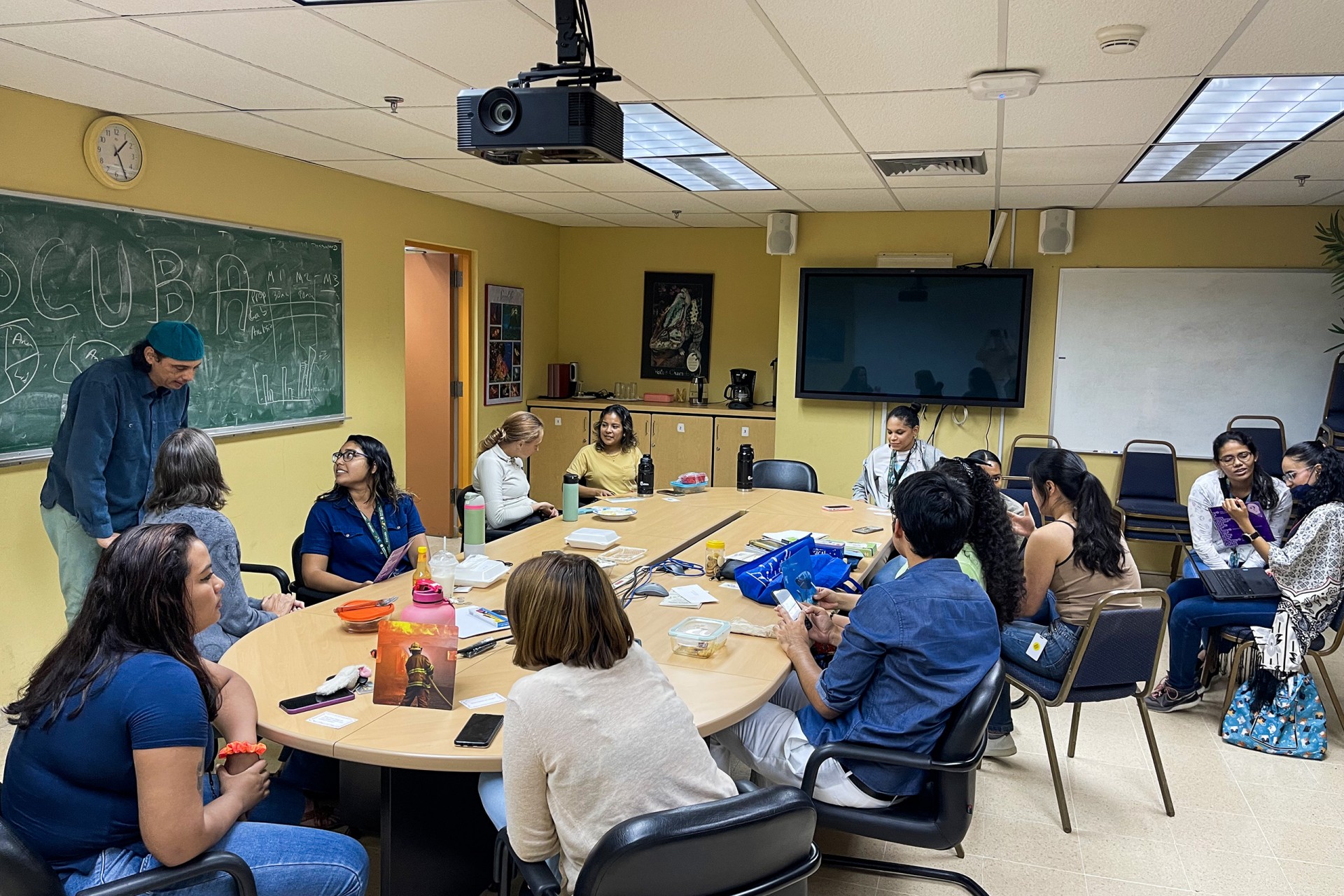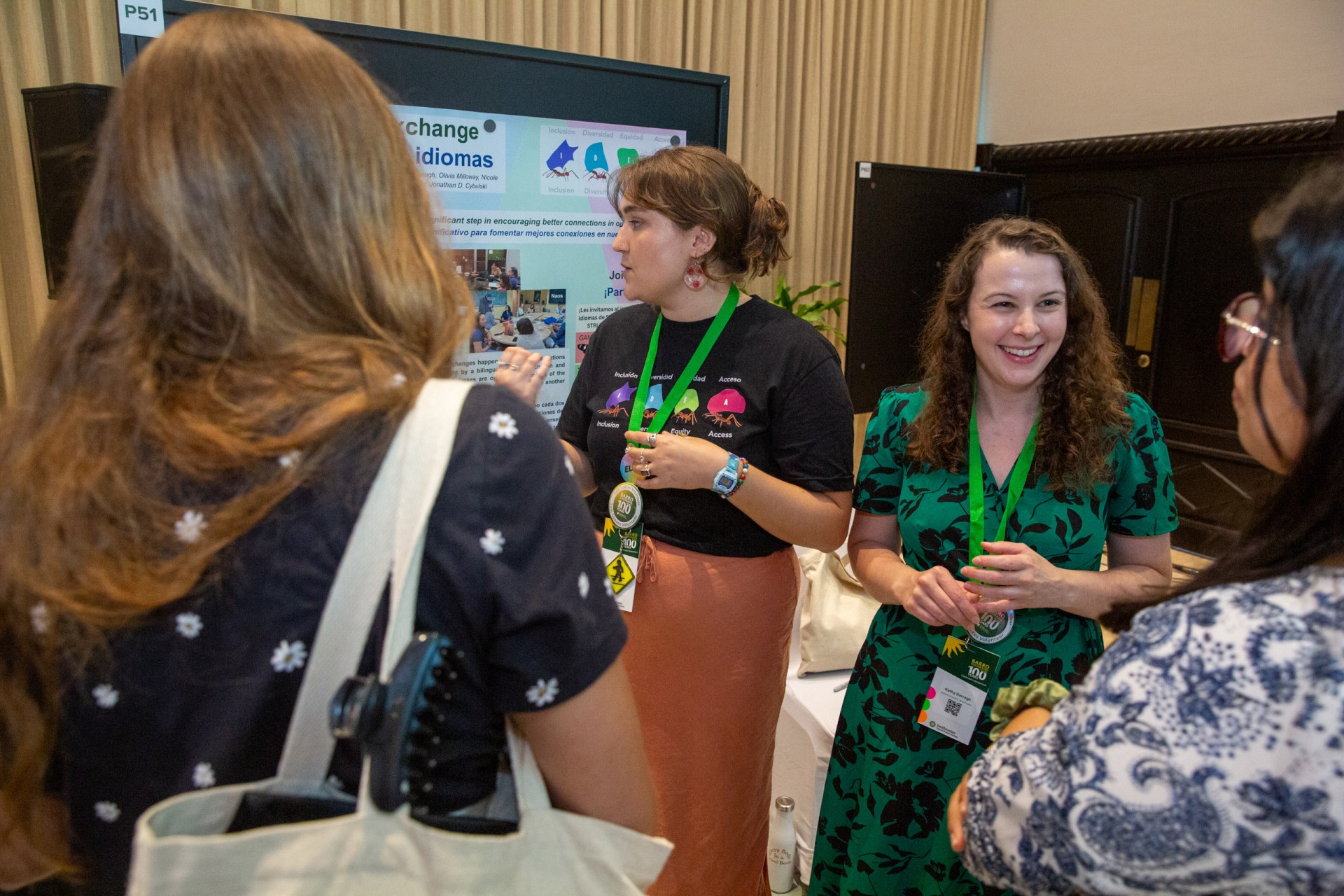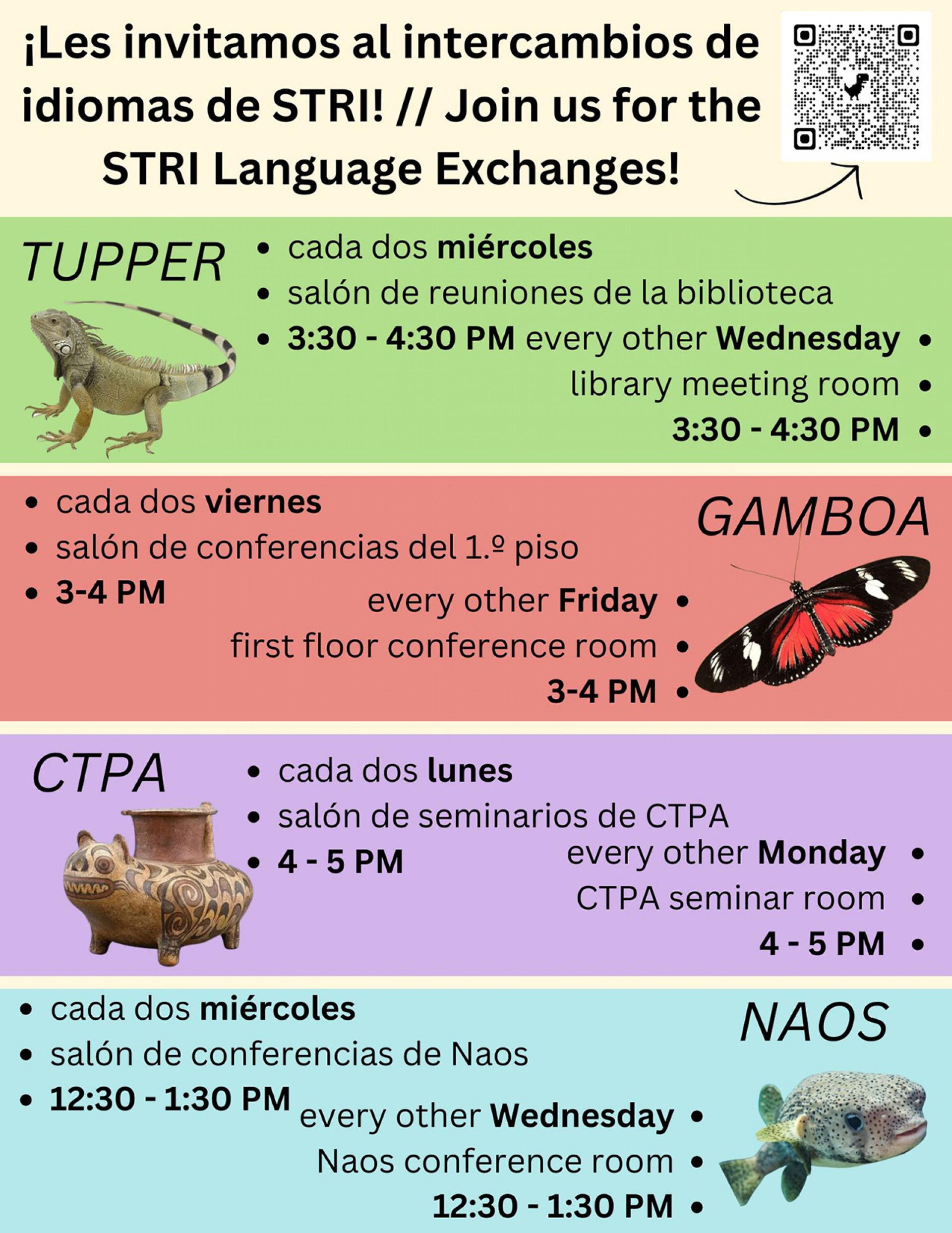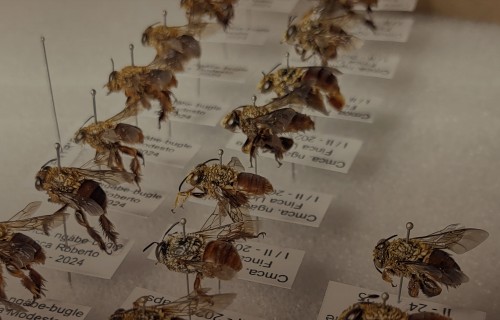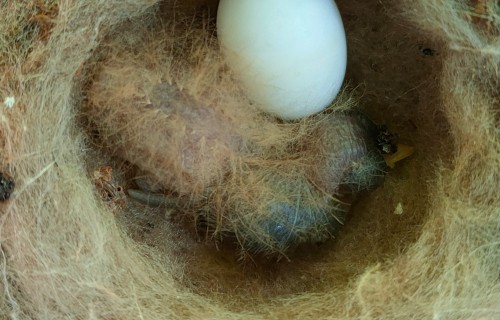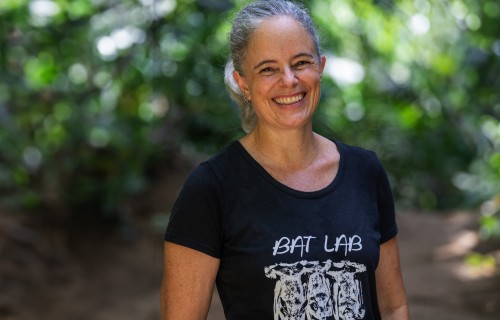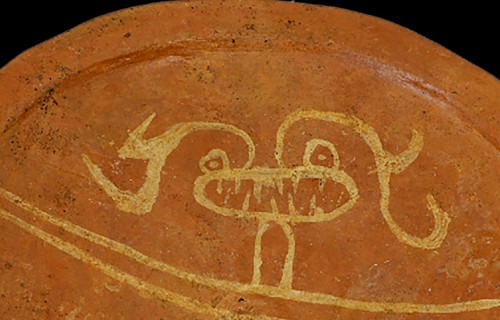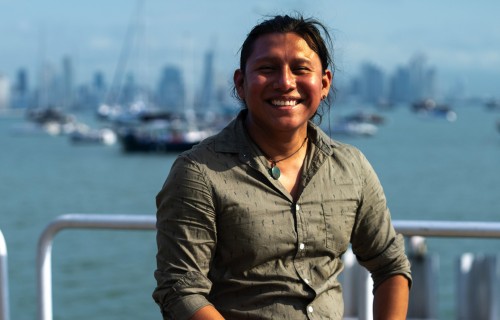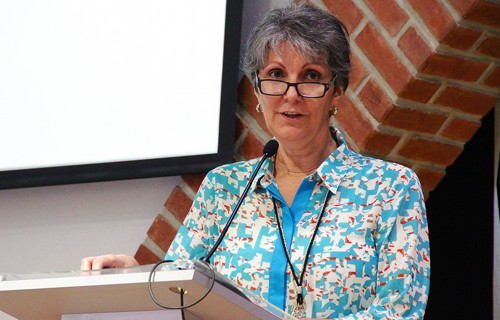A comparison of colorful hamlets
from the Caribbean challenges ideas
about how species arise
Language
Exchange
Language and cultural “intercambios” bring the Smithsonian Tropical Research Institute community together
Story by Olivia Milloway
Since 2023, a grassroots diversity and inclusion initiative has brought English and Spanish language learning to hundreds, fostering connection and feelings of belonging within the STRI community.
In the midst of a high-stakes game, researchers and students from Panama, the US, the UK, Colombia, and France collectively held their breath. Tasked with answering questions to practice their English or Spanish, then stacking cards higher and higher, their house of cards eventually toppled – but not before they learned how to say “the pressure is on'' in multiple languages.
For more than a year, the autonomous, grassroots STRI-IDEA initiative – which stands for Inclusion, Diversity, Equity, and Access at the Smithsonian Tropical Research Institute – has organized language lessons across several STRI stations. The classes are open to all members of the STRI community regardless of language level and are a space for mutual language learning, cultural exchange, community building, and fun.
STRI’s director, Josh Tewksbury, who takes Spanish classes three days a week, noted the importance of the language exchange program: “There’s probably no more important form of professional development at STRI than building bilingual capacity. I think there's a strong case to be made that we should be investing more in this space as part of our role and mission.”
From an open letter on their website, the Multilingualism and Community Engagement Task Force subcommittee of STRI-IDEA stated the importance of increasing Spanish and English proficiency at STRI to promote equity in science. But this is no small charge; on average, STRI sees around 1,400 scientific visitors each year from more than fifty countries. In 2023, about one third of STRI’s scientific visitors — a designation which includes interns, fellows, graduate students, field crews, volunteers, and visiting researchers — were visiting from Spanish-speaking countries, while a little less than half came from English-speaking countries.
STRI’s employees have a different lean, with a total of 431 employees in Panama, about 90% of whom are from Spanish-Speaking countries. While it’s important to note that country of origin does not indicate language proficiency, STRI is a multicultural, multilingual, and dynamic community across its many stations in Panama. From initial surveys conducted by the Multilingualism subcommittee, about 70% of respondents were interested in learning English, while 30% wanted to learn Spanish for both professional and social reasons.
Mareli Sánchez-Juliá, a current postdoctoral researcher at Yale, grew up in Puerto Rico expressing herself in English and in Spanish – a privilege that helped her connect with many different people when she moved to Gamboa in 2022. “I noticed that language, for some folks, was a barrier to building relationships both at work and within the Gamboa community. This motivated me to create an informal space where all people, regardless of their level of Spanish or English knowledge, could practice language skills while getting to know one another.” Under Mareli’s leadership, the Gamboa language exchanges evolved into a weekly safe space to “celebrate the peculiarities of each country’s flavor of Spanish and English,” to build vocabulary, confidence, and friendship.
Olivia Milloway and Kathy Darragh of STRI-IDEA presented the Language Exchange initiative to participants at the BCI100 Conference along with Nicole Smith-Guzman and Carmen Schloeder. The poster was made in large part by Jon Cybulski.
“When I first arrived at STRI in 2016, I was determined to leave speaking Spanish,” said Kathy Darragh, a researcher from Northern Ireland and member of the STRI-IDEA Multilingualism Taskforce who has been instrumental in securing funding to expand the language exchange program. At that time, there was no institutional support for language learning, so she learned by speaking only Spanish in the field. “It was sometimes difficult, but well worthwhile in the long run,” she reflected. For Kathy, being able to share her work in Spanish both within STRI and with the general public has been a critical part of building relationships. She hopes that the language exchange program will encourage more visiting researchers to learn Spanish and connect with people outside of STRI.
You can find an updated schedule of future language exchanges and lesson themes here, or by following the QR code on the poster.
Credit: Olivia Milloway
STRI is a US-based institution in Central America; while English has long been the international language of science, diversity and inclusion advocates have pointed out that English-only conferences, journals, and opportunities are exclusionary in nature. “I see the creation of more bilingual spaces as an important starting point to building a more inclusive and collaborative community at STRI. While only a small step in the right direction, it's been really exciting to see this initiative come to fruition as we keep working together to create a brighter, more equitable future,” said Kathy Darragh.
Josh agrees. “We are an exceptionally complex multicultural environment which has embedded power imbalances and structural challenges that need to be overcome at the micro level within a community working together, and at a macro level within the organization – and even the institution of science,” he said. “One of the things that STRI-IDEA has been really, really good at doing is pointing out the need to support, with intentionality, this objective of creating a more equitable form of science for the future.”
Currently, the STRI Diversity Office provides funding for biweekly classes at four stations – Gamboa, Tupper, CTPA, and Naos – led by a Panamanian bilingual teacher, Javier Villamonte. Since September of 2023, the committee has provided over 30 lessons to nearly 200 people, and starting in June, the initiative has been renewed for 6 more months of funding. The Multilingualism Committee is looking to make the language exchanges more accessible to more of the STRI community; if you have any comments or ideas you’d like to share, please reach out to stri.idea@gmail.com.

